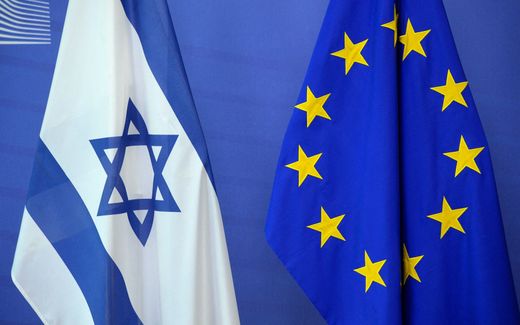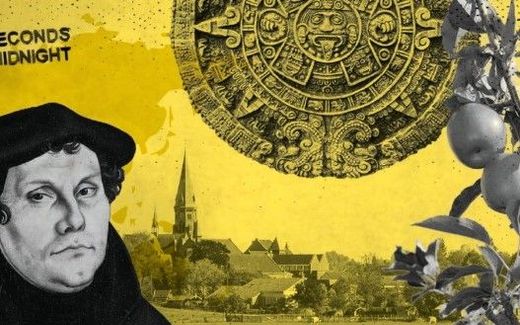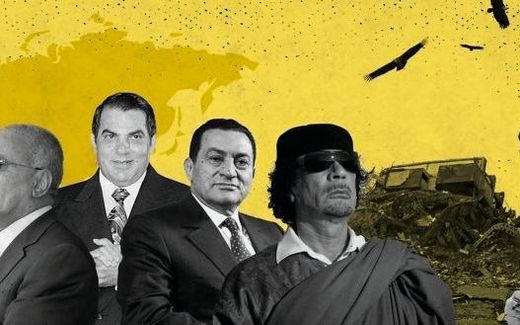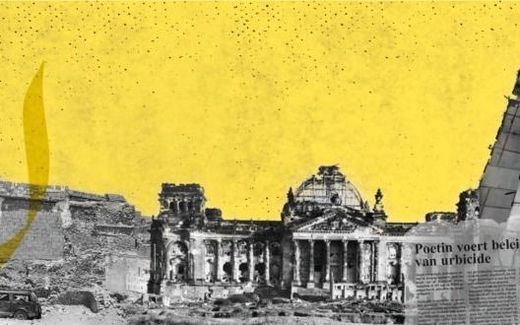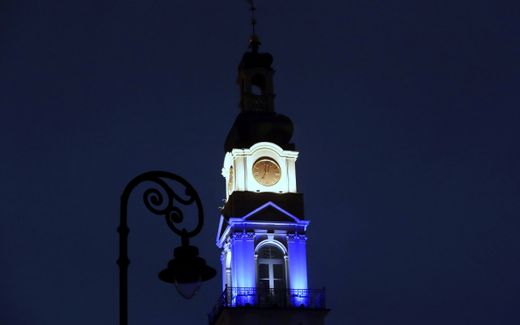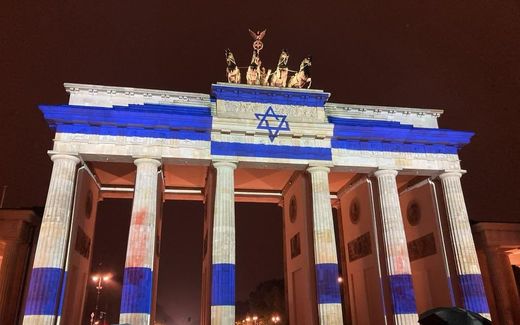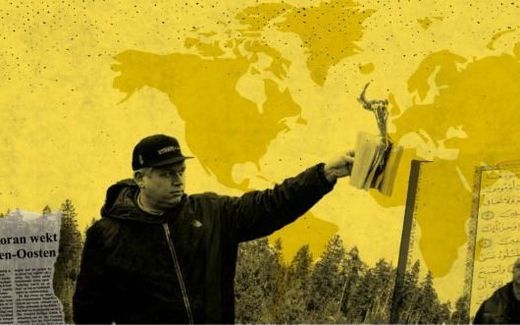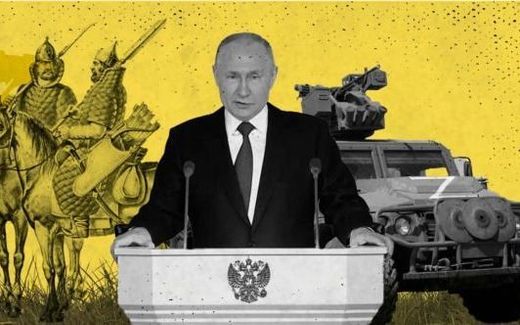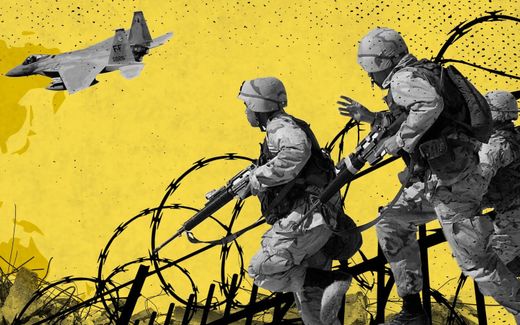Can an armageddon bring peace?
16-10-2023
Opinion
Jacob Hoekman, RD
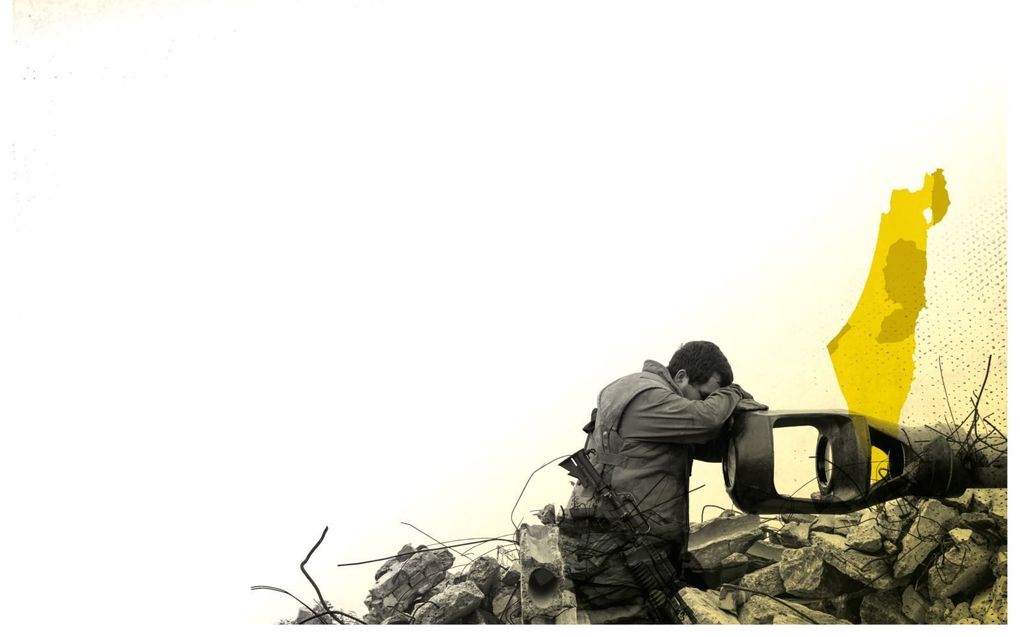
Photo RD
Opinion
"May Allah grant success to the brave Palestinian resistance." "We congratulate from the bottom of our hearts the brotherly Muslim Palestinian people for their effort to liberate their holy ground, and we console them with their honourable fallen martyrs." "A morning of victory, a morning of resistance, a morning of pride and dignity." "The Zionist enemy must remember this date well and realise that what comes after is not the same as before."
Here are a few of the literal texts from people I know well who are otherwise entirely reasonable. But who are now sharing hate pictures en masse on social media. Who applaud barbaric killings "because Israel asked for them".
Us vs them
Journalist Jakob Hoekman researches history to find answers to difficult questions related to the news.
Fortunately, that is only part of the posts I see coming along. There are also many messages of support for Israel that fill my social media feed. Many Stars of David, many prayers, and many warm words for Israel and its army. On that side, there are hardly any words of hate.
Every time I open my Instagram or X-page (Twitter) this week, these worlds of difference are directly below and next to each other. I have lived in the Middle East for years, but I have never experienced a deeper divide between this world and the one of Dutch Christians than when it comes to Israel in times of war.
With our children, we had a little conversation about it. What do you say at school when questioned about the war between Israel and Hamas? This is not imaginary, and they live in an environment where any sympathy for Israel can set tempers high. "Just say you support peace," I diplomatically advised them.
I thought about it later that day. It sounds nice, but isn't it just cowardly? Isn't it like raising the peace flag instead of the Israeli flag, as several Dutch municipalities did this week? Isn't that a knee-jerk reaction? A matter of being a Chamberlain when what is needed now is a Churchill? Isn't peace, in the sense of the absence of war, long gone?
This is the time to take sides and stand by your choice. And that choice is either Israel or Hamas. At least, that is the conclusion that more and more people in the Middle East are drawing. "Jewish-Palestinian coexistence in any form is dead, forever," writes Lebanese-Iraqi researcher and journalist Hussain Abdul-Hussain, for example. "From now on, the game between Israel and the Palestinians will be played according to the famous Arab tribal rules: kill or be killed. This is a war for existence that will end with one people staying and one people leaving."
There is no shortage of big words, and I find that they appeal to me, too. Anyone who has seen how naked women are paraded around, how mutilated bodies are dragged through Gaza City as trophies, and how hundreds of people are mowed down at a festival has no moral compass if he then starts talking about both sides. No, the time of patching things up is over. Let it come to a final battle, a kind of armageddon that determines a final winner.
Sword
And then I suddenly see there, scrolling among all the texts of violence and big words on social media, this post with a text in Hebrew, Arabic and English. "Then Jesus said to him, Put your sword back in its place, for all who reach for the sword will perish by the sword."
Nothing more.
What does this text mean here, right now? Is such a final battle, settling this mother of all us-them conflicts, not a good idea after all? But what then? Can there be peace at all in this unholy Holy Land? That is the question I seek an answer to.
From political history, the right answer is not hard to find, I noticed. Indeed, politics from within itself is incapable of establishing lasting peace. Not even if peace, very minimally, is explained only as the absence of war. Great wars that were supposed to end other wars helped for a while at most. The "War on Terror" that 20 years ago was supposed to chase the Taliban out of Afghanistan and Saddam Hussein out of Iraq, among others, did not bring any lasting results - at best, more chaos and more extremism.
Peace
We saw the same thing over a hundred years ago, with the First World War. That was supposed to be "a war to end all wars". But the Paris peace talks, which humiliated Germany and divided the Middle East, among others, already carried the seeds of future wars. "After war to stop war, they seem to be quite successful at Paris now in creating a peace to stop peace," sighed British field marshal Archibald Wavell at the time.
That sigh later provided the title of a magisterial book on the problems of the modern Middle East, including Israel and the Palestinians. "A Peace to End all Peace" is the name of that book, and the conclusion is that disastrous political decisions in the aftermath of World War I laid the foundation for a lot of instability in the Middle East today.
Primal conflict
Nations are not going to bring lasting peace; that much is clear. If only because political views make it impossible. Hamas will not rest until Israel no longer exists. Which means fighters rampaging like animals in southern Israel. And Israel will not rest until retaliation has taken place. This currently means, among other things, that 2 million people in Gaza are cut off from electricity, food, and fuel, including those suffering under the Hamas yoke.
So, we don't need to look for peace in governments, especially if we broaden the definition of it. Because what if peace means not only the absence of war but also good relations between neighbours? Between members of a family? Between spouses? Between a man and his God? It is overcharging what a state can do.
But what then? So what do Jesus' words about peace and warning against taking up the sword mean for this primal conflict?
Shalom
Instead of political history, I turned to philosophical and theological history. And it is rich when it comes to making peace. As it turns out, there is broad agreement that making peace is not a work of states and governments but takes shape in individuals. "Peace is not the absence of war; it is a virtue," wrote Spinoza. It is about whether I want to trust the other, whether I want justice for him, whether I want to reconcile with him.
Rabbinic literature is also rich in thoughts on "Shalom". And even the rabbis usually apply this concept to the relationship of man to man and not first and foremost to the relationship between political entities.
Jewish philosophers have elaborated on this. The 20th-century Emmanuel Levinas, for example who, as a Holocaust survivor, knew better than anyone how fragile peace is. His thoughts on peace always have to do with the centrality of the other, with the stranger we come to know through his countenance. Even and precisely when that other is an enemy. Only when one human being truly opens up to the encounter with the other is peace possible.
For Levinas, the implication of his philosophy was that an encounter between a Holocaust survivor and an ex-Nazi is possible as long as there is a genuine will to meet. Or, today: an encounter between Jew and Palestinian who both want to know the other in their deepest being.
Zionism
In fact, according to Ephraim Meir, professor of Jewish philosophy, that focus on peace between people is the deepest meaning of the word Zionism. For Hamas, that word stands for ultimate evil, and Meir understands that. But Zionism is not purely political, he writes. "The prophetic vision of Zion pays attention to what cannot be reduced to politics. This Zion brings the vision of a peace to be realised daily: peace that transcends the state and its institutions, but which does not persevere without it."
Peace as the heart of Zion: that aspect also gets a lot of emphasis in Christian theology. The 4th-century John Chrysostom calls the application of peace a core value that brings a Christian close to God. And the 2nd-century Clement of Alexandria spoke of peace as inseparable from the highest form of gnosis - the ultimate knowledge an individual can gain from Christ's way. Or take Augustine: both his "Confessions" and "De civitate Dei" (The City of God) culminate in an ode to peace. With him, this is a peace that has its origin in a life secured in Christ.
So the order is from Christ to man, to his fellow man, to all of society - including politics. But never the other way around.
New Jerusalem
So, is this where the answer to my question lies? While raising an Israeli flag emphasises the right to defend the state of Israel, you simultaneously support people who envisage a more lasting peace of Jerusalem - something like that?
In any case, it is the preliminary outcome of my quest. That I cannot over-question current Israeli politics in my desire for peace; I understand better courtesy of philosophers and church fathers. It would end in disillusionment.
But at the same time, I am still convinced that the prophetic desire for peace is undiminished - even more so today than a week ago. No stream of big words on Twitter can change that. Whatever war haters say, blessed are the peacemakers.
I look with different eyes at organisations like The Parents Circle, which brings together Israeli and Palestinian families who have lost someone to war. Or at Musalaha, an organisation working on reconciliation on an individual level. And yes, I hope that these ideas will eventually find their way into Israeli politics as well, as the deaths continue in large numbers.
Perhaps it was not so cowardly, after all, that advice to my children to tell their Muslim classmates that they are for peace. Let peace begin with me and my home. Now and tomorrow and again and again. Until the new Jerusalem becomes a reality.
This article was translated by CNE.news and published by the Dutch daily Reformatorisch Dagblad on October 14, 2023
Related Articles

